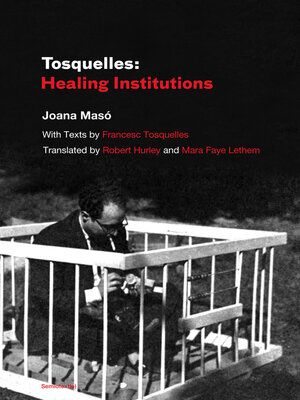
Sign up to save your library
With an OverDrive account, you can save your favorite libraries for at-a-glance information about availability. Find out more about OverDrive accounts.
Find this title in Libby, the library reading app by OverDrive.



Search for a digital library with this title
Title found at these libraries:
| Library Name | Distance |
|---|---|
| Loading... |
A landmark anthology of Francesc Tosquelles's intellectual, clinical, and political writings, many available in English translation for the first time.
Often consigned to legend, the life of Francesc Tosquelles reads as an adventure story of clinical, political, and collective experimentation around healing institutions. Joining the Saint-Alban-sur-Limagnole psychiatric hospital in Nazi-occupied France, Tosquelles invented what would become “institutional psychotherapy” with poets, film critics, photographers, and psychiatrists including Jean Oury, Agnès Masson, Frantz Fanon, Tristan Tzara, and Paul Éluard.
This first anthology of Tosquelles’s writings shines a light on his forgotten history, from his engagement as a psychiatrist during the Spanish Civil War alongside anti-Franquist and anti-Stalinist communists, to his progressive return to Catalonia following his role in the “cultural revolution” of “institutional psychotherapy” in France. Through translations of texts never before available in English, Tosquelles’s powerful voice reminds us how important politicized relations to institutions are in our times of sick institutions, scapegoating of strangers, and globalized war.
Often consigned to legend, the life of Francesc Tosquelles reads as an adventure story of clinical, political, and collective experimentation around healing institutions. Joining the Saint-Alban-sur-Limagnole psychiatric hospital in Nazi-occupied France, Tosquelles invented what would become “institutional psychotherapy” with poets, film critics, photographers, and psychiatrists including Jean Oury, Agnès Masson, Frantz Fanon, Tristan Tzara, and Paul Éluard.
This first anthology of Tosquelles’s writings shines a light on his forgotten history, from his engagement as a psychiatrist during the Spanish Civil War alongside anti-Franquist and anti-Stalinist communists, to his progressive return to Catalonia following his role in the “cultural revolution” of “institutional psychotherapy” in France. Through translations of texts never before available in English, Tosquelles’s powerful voice reminds us how important politicized relations to institutions are in our times of sick institutions, scapegoating of strangers, and globalized war.







